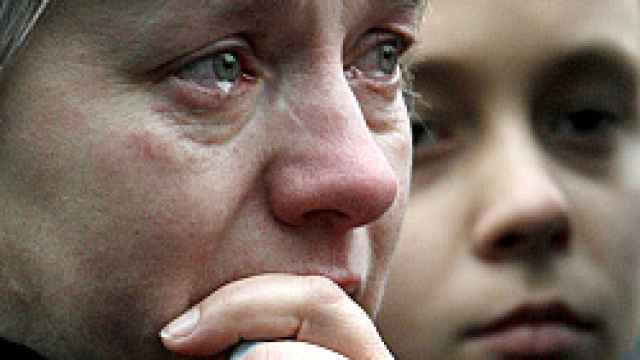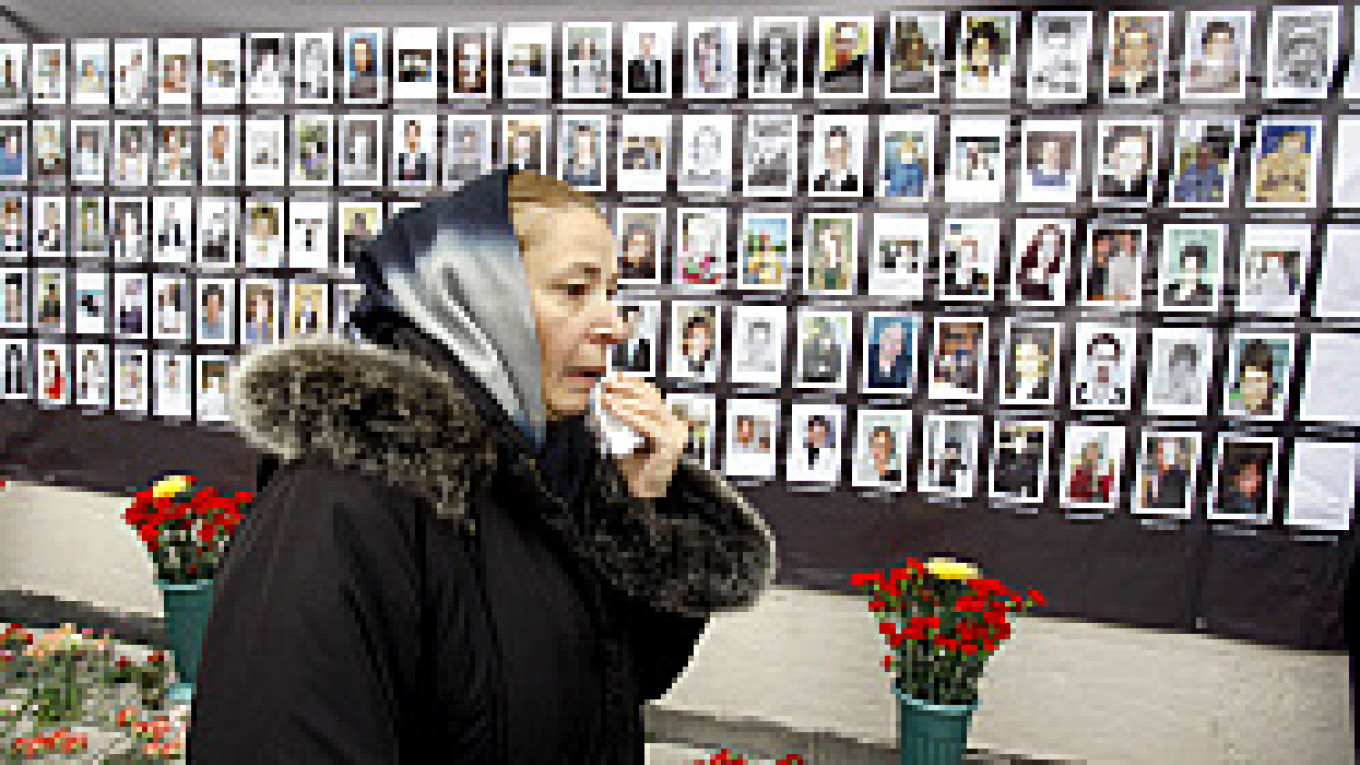The gathering was sponsored by Nord Ost, a group formed by the relatives of the victims and named after the musical playing at the theater at the time of the siege.
Former hostages, their relatives and relatives of victims of domestic and international terrorist attacks addressed the crowd.
"Today is a day of mourning and I wish you courage and patience," said Igor Trunov, the lawyer representing the Dubrovka victims and their relatives.
Some mourners stood silently, their eyes glassy with tears, while others wept openly.
Among them was a middle-aged woman, Natalya, dressed in white. Both she and her husband had been hostages. He died in the siege, leaving her to raise their 12-year-old son, a friend holding her hand said.
"I don't want to say anything," Natalya said when asked to comment. "My child and I are in pain."
Larisa and Valentin Medvedev lost their 38-year-old son, Vadim. He is survived by his wife and two sons, 15 and 18.
"They hadn't gone out for so many years and finally decided to go," Medvedeva said. "He loved music so much and died as a result."
"No money offered by the authorities can make up for the loss," said Irina, Vadim's wife.
 Mikhail Metzel / AP A woman weeping during a service at the Dubrovka memorial on Friday. | |
Relatives of the victims of the 2004 Beslan school siege, the 2002 Volgodonsk apartment bombing, the 2005 London metro bombing and the Sept. 11 attacks in the United States attended, Interfax reported.
First Deputy Mayors Lyudmila Shvetsova and Yury Roslyak, City Duma Deputy Sergei Mitrokhin, head of the Nord Ost group Tatyana Karpova and co-chairwoman of Voice of Beslan Ella Kesayeva were in attendance, Interfax reported.
"Forgive us that the killers haven't been found and punished," a recorded male voice said over a piece of classical music just before the release of the balloons. "Sooner or later, everyone will have to face divine justice."
A Message from The Moscow Times:
Dear readers,
We are facing unprecedented challenges. Russia's Prosecutor General's Office has designated The Moscow Times as an "undesirable" organization, criminalizing our work and putting our staff at risk of prosecution. This follows our earlier unjust labeling as a "foreign agent."
These actions are direct attempts to silence independent journalism in Russia. The authorities claim our work "discredits the decisions of the Russian leadership." We see things differently: we strive to provide accurate, unbiased reporting on Russia.
We, the journalists of The Moscow Times, refuse to be silenced. But to continue our work, we need your help.
Your support, no matter how small, makes a world of difference. If you can, please support us monthly starting from just $2. It's quick to set up, and every contribution makes a significant impact.
By supporting The Moscow Times, you're defending open, independent journalism in the face of repression. Thank you for standing with us.
Remind me later.


